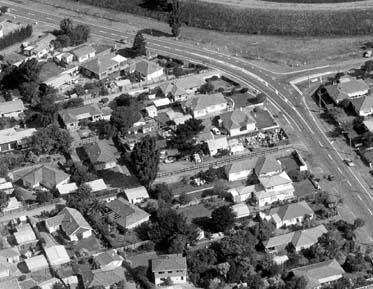
How Christchurch Rates are Calculated
Included in the Christchurch
City Council Draft Plan 1999 is a calculation of
the rates needed from Christchurch ratepayers to keep our City going. This provides an
overall rating increase for the Council of 1.96 per cent.
First the total cost of all Council services for the next financial year is worked out,
including operating costs, debt servicing costs and the cost of assets depreciating. This
came to $234 million.
When those services funded by user charges are deducted,
this figure is reduced by $83 million to $151 million. Taking into account the dividends
received by the Council from its trading companies, and interest earned, the figure is
reduced further to $124 million. This is the amount that Council needs to collect through
rates.
All ratepayers pay a Uniform Annual General Charge. This is set at $105. Deducting this
figure from the total required from rates leaves $112 million.
This figure is then divided between the three different
groups of ratepayers: commercial, rural and residential. The split is made according to a
detailed formula formalised last year as the Council's funding policy, which assigns a
share of the benefits from each Council service to each group of ratepayers. For example,
roads provide a significant benefit to commercial and rural ratepayers, so therefore these
groups are assigned a greater share of the costs associated with roads - whereas libraries
chiefly benefit Christchurch residents, who are subsequently required to pay a greater
share of the cost of libraries than the other ratepayer groups.
When all the benefits have been shared between each
ratepayer group, the split of the $124 million the Council needs to provide all its
services is as follows:
| Residential |
72.1 per cent |
| Commercial/Industrial |
25.6 per cent |
| Rural |
1.5 per cent |
| Institutions |
0.8 per cent. |
This means that $89 million is the total required from
all Christchurch residential ratepayers. This is 4.8 per cent more than the Council
required from residential ratepayers last year.
The $89 million is shared between the 117,225 residential ratepayers according to property
values. Since properties were revalued in September last year by the Government property
valuer Quotable Value New Zealand, the figure used for each residential ratepayer is not
the same as the value used last year.
| Values of some properties have not greatly increased -
some have even decreased. The owners of these properties will not experience much
difference in the rates they pay in the coming year. For those who own properties which
now have a higher value than they did last year, rates will increase a little more. |
|
|

For example, the value of most property in Cashmere,
Fendalton, Ilam and Burnside has not increased much since the previous official valuation
in 1995, and may even have decreased. People living in these suburbs should expect to pay
approximately the same in rates as they did last year.
Meanwhile property values in Linwood, Woolston, Addington, Beckenham and Bexley have
increased considerably.
People living in these suburbs are now owners of
properties with a higher government value. Because their valuation increase is greater
than average, they can expect to pay higher rates. The table below gives some examples.
| Suburb |
Property value1995 |
Property value 1998 |
Current vs. upcoming year -
proposed change in annual rates |
| Cashmere |
$350,000 |
$350,000 |
$55 decrease (or $1.06 decrease per week) |
| Fendalton |
$445,000 |
$450,000 |
$47 decrease(or 91 cents decrease per week) |
| Russley |
$149,000 |
$155,000 |
$3 increase (or 6 cents increase per week) |
| Mt Pleasant |
$170,000 |
$180,000 |
$19 increase (or 36 cents increase per
week) |
| Linwood |
$96,000 |
$120,000 |
$94 increase(or $1.81 increase per week) |
| Woolston |
$79,000 |
$94,000 |
$56 increase(or $1.07 increase per week) |
| Sydenham |
$84,000 |
$100,000 |
$59 increase(or $1.14 increase per week) |
| Dallington |
$94,000 |
$110,000 |
$58 increase(or $1.11 increase per week) |
| Hoon Hay |
$186,000 |
$216,000 |
$107 increase(or $2.06 increase per week) |

|

